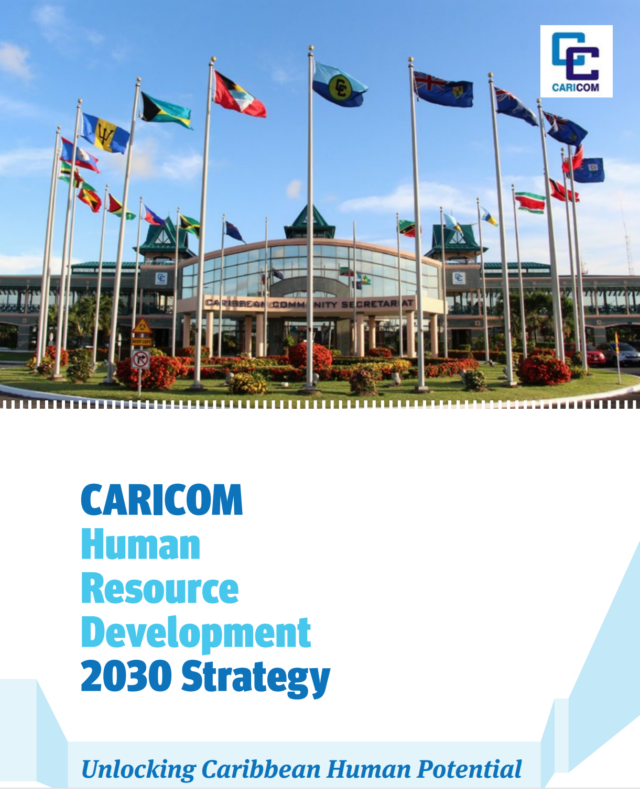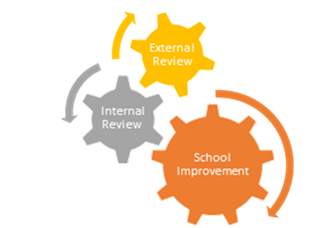The CARICOM Human Resource Development 2030 Strategy was approved by Heads of Government for implementation in 2017. The strategy promotes the development of a regional education eco-system by ensuring access and participation, equity, relevance and quality in educational design and delivery. A key transformative initiative in the implementation process is the advancement of a Caribbean New School Model in Early Childhood, Primary and Secondary Education (CNSM). The CNSM mandates a key paradigm shift in actions and thinking about school effectiveness. An aspect of this is an examination of the imperatives for quality teaching and the expansion of a quality management system; nurturing an agile education system. In 2019, the CARICOM Secretariat convened a Task Force to design a Basic Education and Quality Management Framework. The opinion piece below, is a part of a series of intellectual products generated by the Task Force, as members collaborate to design a regional education system that is engaged in schooling as a form of inclusive education. The opinion pieces are intended to: (1) generate regional conversations around the opportunities and challenges of education management frameworks and (2) share best practices and experience regionally and internationally. Today we share a piece from Denise Gatt, an International Expert on the Task force
in actions and thinking about school effectiveness. An aspect of this is an examination of the imperatives for quality teaching and the expansion of a quality management system; nurturing an agile education system. In 2019, the CARICOM Secretariat convened a Task Force to design a Basic Education and Quality Management Framework. The opinion piece below, is a part of a series of intellectual products generated by the Task Force, as members collaborate to design a regional education system that is engaged in schooling as a form of inclusive education. The opinion pieces are intended to: (1) generate regional conversations around the opportunities and challenges of education management frameworks and (2) share best practices and experience regionally and internationally. Today we share a piece from Denise Gatt, an International Expert on the Task force
Towards Quality Education: The Maltese perspective
By: Denise Gatt
The Maltese Islands are a small archipelago in the Mediterranean sea. We became an independent country in 1964 and a part of the European Union in 2004. Notwithstanding the small size of the island, our education system has been steadily developing over the last decades. Education in Malta is compulsory for all children and youths aged from five to sixteen years as defined by Chapter 327 of the Laws of Malta – The Education Act. Compulsory education covers six years of primary education followed by five years of secondary education. It is offered on a full time basis and free in all state schools, however parents can choose to educate their children in Church or Independent schools. Education in church schools is also free while parents of children attending schools in the Independent sector enjoy a number of tax-relief measures.
All schools are obliged by law to follow the National Curriculum Framework (2012) and to abide by all the regulations as listed in the Education Act. At the end of compulsory education students can further their education and training in post-secondary and tertiary education institutions in Malta or abroad. In the last ten years there has also been a concerted push towards promoting early education and care. As part of this endeavor, in 2013 the Maltese Government introduced the free childcare scheme for childcare services from (0-3). This initiative helped in registering a surge in the number of children attending these centres and and a subsequent increase in workforce.
In recent years there has also been a conscious push towards moving compulsory education from one which focused on summative achievements to a quality education which is more formative and hones in on the individual skills and qualities of children. To this effect, the My Journey: Achieving through different paths project, launched in 2016 by the Ministry of Education and Employment in collaboration with the European Union aims at proposing a more equitable secondary education which creates a legacy with the past, adapts to the present and tries to anticipate future challenges and opportunities in a globalised world. The aim of this project was to give equal opportunities to both vocational and academic paths for learning. This is allowing schools to start moving away from the traditional way of teaching and learning to one which is more dynamic and gives learners further skills towards becoming responsible citizens.
The Directorate for Quality and Standards in Education (DQSE) is responsible for external Quality Assurance for Maltese compulsory schooling in Malta. The main role of the Quality Assurance Department (QAD), within the DQSE is to carry out external reviews in schools and institutions which provide an educational service to learners of compulsory school age, as well as institutions such as childcare centres and kindergarten schools which offer non-compulsory early years education. These visits to schools are carried out across the state and non-state sector which allows the QAD to have a relatively clear idea of what is happening in schools across the different areas.
Thanks to its developmental approach, the QAD has established a long-lasting and fruitful professional relationship with schools hailing from the different sectors (State, Church and Independent). This rapport has provided the department with a wide spectrum of experiences linked to quality education. In order to better understand this relationship, one must look at the context in which these schools operate. The Maltese islands, although small in size have a distinctive character which has emerged from a rich and embattled history including that of being a colonial country for an extensive time. Each and every school has a distinct character and background which needs to be embedded in the approach used with the school, as well as throughout any evaluation process. The particular setting is also considered carefully when defining and discussing the way forward with schools. We strongly believe it is useless providing schools with staple recommendations which they will find disheartening and very difficult to achieve. Ultimately the objective is to empower schools to bring about their own improvement.
Experience with the diverse sectors has also shown that collaboration with different stakeholders who make up the school community is a very important element in the journey towards improvement. This is one of those situations where the small size of our island and the connectedness which comes along with it can be taken as an advantage. This kind of collaboration and the development of a sound professional dialogue has helped cultivate the developmental approach used with schools. This approach is evidence based and focuses on building dialogue with the different stakeholders within the school including the Senior Management team, teaching staff as well as the learners themselves and their parents. This professional dialogue with schools is at the basis of building a long-lasting trust which is necessary if envisioned objectives are to be achieved and have a long-term effect.
The National Quality Standards for all schools launched in 2016 are promoted within schools as a clear guide towards achieving quality not only in relation to external quality assurance but also when it comes to internal quality assurance which is carried out by the individual schools on a yearly basis. These standards are fundamentally the basis of the external reviews, however, they are also very valuable tools in the development of a professional dialogue with senior management teams and educators within schools. They are also a source which guide schools to reflect not only on the recommendations which are brought forward through external quality assurance but also throughout the internal review exercise.
The last three decades have seen a consistent push towards promoting school autonomy. The QAD as well as the Ministry for Education and Employment have worked to empower schools so that through their  internal review process and school development plan they are able to develop their own improvement strategy. The process of internal evaluation is essential to schools as it helps them assess their own position in terms of their priority targets. The school can then modify its plan for development according to its evaluation of the progress made. The internal review and school development planning process are carefully considered during external reviews as they enable the individual school to reflect and evaluate on its own strengths and areas for development. The developmental stance taken by the QAD aims to complement the internal review, as well as strengthen the external review process. The purposeful gathering of data, continuous professional development in the areas of educational leadership and learning and teaching as well as nurturing the school ethos allows the school to maintain a clear focus on its development. For real improvement to occur the school must develop its own tools to aid members of staff to reflect and ultimately achieve the goals they set upon themselves.
internal review process and school development plan they are able to develop their own improvement strategy. The process of internal evaluation is essential to schools as it helps them assess their own position in terms of their priority targets. The school can then modify its plan for development according to its evaluation of the progress made. The internal review and school development planning process are carefully considered during external reviews as they enable the individual school to reflect and evaluate on its own strengths and areas for development. The developmental stance taken by the QAD aims to complement the internal review, as well as strengthen the external review process. The purposeful gathering of data, continuous professional development in the areas of educational leadership and learning and teaching as well as nurturing the school ethos allows the school to maintain a clear focus on its development. For real improvement to occur the school must develop its own tools to aid members of staff to reflect and ultimately achieve the goals they set upon themselves.
The current COVID-19 situation has been a very difficult test for all education systems around the world. The goal of ensuring quality education remains steadfast but has become more challenging to reach due to the fact that school leaders and educators are facing great difficulties which are not always surmountable and create a lot of frustration as well as anger. The challenge at this stage is to move away from established procedures which will not work in the current scenario and use our expertise to find different ways of guiding schools towards nurturing confidence and seeking support in sustaining the approach they have chosen to take on within their school. At this point in time, because the situation is in a constant state of flux, we are steering our work towards using the professional dialogue and the relationship of trust and respect which we have built with schools to discuss how schools can find an effective path towards quality education; one which now more than ever ensures that all learners are included and no one is left behind.
Denise Gatt is currently the Assistant Director for Quality Assurance within the Directorate for Quality and Standards in Education in Malta. Her current role within the directorate is related to the strategic planning of external reviews for pre-compulsory and compulsory schooling in Malta. She has an extensive background in education and has specialised in Educational Leadership and Management. She is currently reading for PhD with the University of Malta focusing on internal reviews and self-evaluation in schools.

